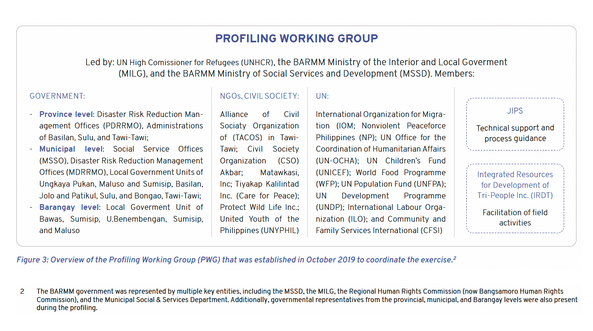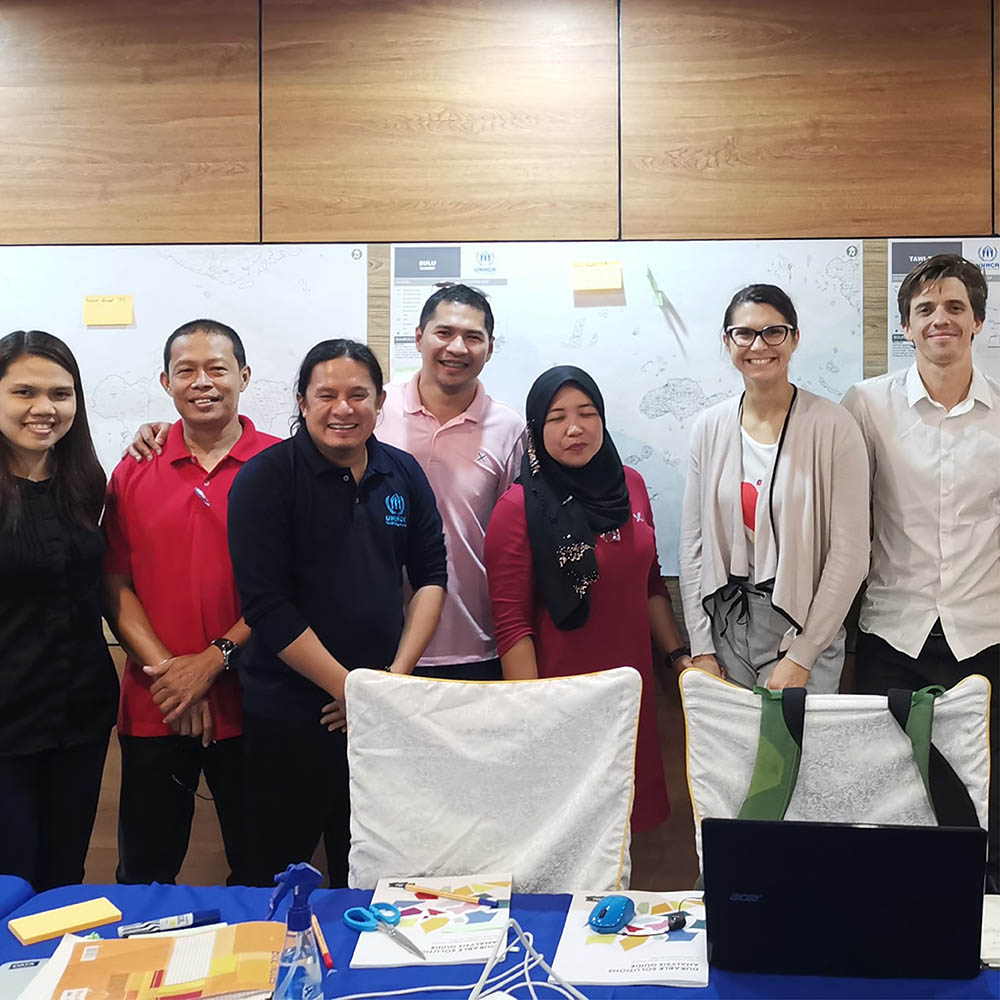Profiling the islands of Basilan, Sulu and Tawi-Tawi (2019 – 2021)
In July 2019, JIPS received a request for technical support to a profiling exercise to fill a critical data gap for a better understanding of the distinct displacement situations in the provinces of Basilan, Sulu and Tawi-Tawi (BASULTA). The exercise looked at the living conditions of IDPs in terms of their humanitarian and long-term needs, and furthermore considered the situation of Sama Bajaus communities in Bongao, Tawi-Tawi island, who were at risk of statelessness.
In a 3-week mission in October 2019, JIPS organised stakeholder meetings, defined exercise objectives, and established a collaborative structure (see below). Working with technical experts and local partners, we identified analysis priorities, designed the sampling approach and questionnaire, and assisted in enumerator training. Data collection occurred in November 2019 by the Integrated Resource Development for Tri-People (IRDT), with UNHCR handling data cleaning with JIPS support from December 2019 to January 2020. We conducted a preliminary analysis and virtual workshops due to COVID-19, aiding in-country partners in joint analysis implementation, community engagement, and involving local actors from three islands.
From January to May 2023, JIPS commissioned an independent evaluation of the profiling exercise. Conducted just over a year post-completion, the evaluation assessed the process, structures, and immediate impact. The profiling results guided prompt and lasting responses, reduced protection risks, and heightened awareness of displacement impact. Timely amid the BARMM political transition, the exercise enabled the Bangsamoro Transition Authority (BTA) to develop crucial knowledge and capacities for enhanced response to internal displacement in the region.
Key outputs include:
- The profiling reports, which focused on internally displaced persons on the one hand, and the Sama Bajaus – a population group at risk of statelessness – on the other
- A series of virtual events with province-level authorities in July 2021 and with actors at the BARMM level in August 2021 – a summary of the discussion can be found in the annex to the profiling report
- A global virtual event, co-organised by JIPS and UNHCR Philippines on 26th January 2022
- An advocacy brief outlining key findings and recommendations from the evaluation of the profiling exercise conducted between January and May 2023

